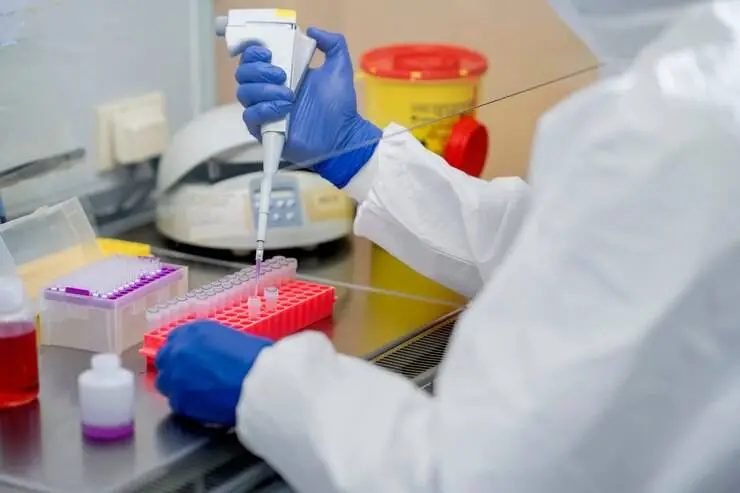Polymers, often referred to as plastics, are a vital component in various industries, ranging from automotive to healthcare, construction, electronics, and consumer goods. The versatility and adaptability of polymers allow manufacturers to create innovative products with a wide range of properties. However, ensuring that these products meet quality, safety, and performance standards is essential. This is where polymer testing comes into play.
Polymer testing involves a comprehensive range of analyses and assessments to evaluate the physical, chemical, and mechanical properties of polymeric materials. This testing ensures that the materials meet the necessary specifications for their intended applications. In this article, we’ll delve into the key aspects of polymer testing, its importance for various industries, and the methods used to ensure product safety and quality.
Why Polymer Testing is Crucial
Polymers are used in products that come into direct contact with people, such as packaging, medical devices, and household goods. Consequently, any failure in the polymer material can lead to safety risks, legal liabilities, and costly recalls. Moreover, polymers in industrial applications, such as automotive parts or electrical components, need to endure harsh environments, including heat, pressure, and chemical exposure. Polymer testing ensures that these materials can withstand such conditions without degrading.
Here are several reasons why polymer testing is essential:
- Product Safety: Many consumer products rely on polymers, and inadequate testing could result in harmful chemicals leaching out, which can be dangerous for users. Polymer testing helps identify any toxic substances that could pose a health risk, ensuring the safety of the final product.
- Regulatory Compliance: Different industries are governed by strict safety and environmental regulations. For instance, the European Union’s REACH regulation and the RoHS directive in the electronics industry require manufacturers to ensure that their products do not contain harmful chemicals. Comprehensive polymer testing ensures that materials comply with these standards, avoiding potential penalties or product bans.
- Material Selection: Choosing the right polymer material for a specific application is critical. Through testing, manufacturers can compare different polymers’ properties, such as durability, tensile strength, chemical resistance, and thermal stability, to determine the best material for their product.
- Quality Assurance: Polymer testing provides an objective measure of quality by assessing whether the material performs as intended. For instance, tensile strength tests can determine whether a polymer can withstand stretching or pulling forces, which is essential for applications like packaging and construction materials.
- Cost Efficiency: While testing may seem like an additional expense, it saves money in the long run. Identifying material weaknesses or defects during the development phase prevents product failures and recalls, which are far more costly. Additionally, selecting the right polymer ensures that manufacturers don’t over-engineer products, thus avoiding unnecessary material costs.
Types of Polymer Testing
Polymer testing encompasses a variety of tests, each focusing on different aspects of the material’s performance and quality. These tests can be broadly categorized into physical, chemical, mechanical, and thermal tests.
- Mechanical Testing: Mechanical tests measure how polymers respond to various forces, including tension, compression, and impact. Common mechanical tests include:
- Tensile Strength Testing: This test measures the polymer’s ability to withstand a stretching force without breaking. It’s crucial for applications like films, fibers, and packaging materials.
- Izod and Charpy Impact Testing: These tests evaluate a polymer’s toughness, specifically how it reacts to sudden forces or impacts. This is important for materials used in safety applications or products that are prone to being dropped or struck.
- Hardness Testing: Polymers used in applications where surface hardness is important, such as in wear-resistant parts, are evaluated using hardness tests like the Shore or Rockwell scales.
- Chemical Testing: Chemical tests analyze the chemical composition and resistance of polymers. This is vital for determining a material’s durability when exposed to chemicals or environmental factors, such as UV light or ozone.
- Chemical Resistance Testing: This test evaluates a polymer’s ability to resist degradation when exposed to chemicals like acids, bases, or solvents. For industries like automotive or construction, where exposure to chemicals is common, this is essential for ensuring material longevity.
- Spectroscopy: Techniques like Fourier-transform infrared (FTIR) spectroscopy help identify a polymer’s chemical composition, ensuring that it is made from the correct materials and free from contaminants.
- Thermal Testing: Polymers used in environments with fluctuating temperatures need to be tested for thermal stability and performance.
- Thermogravimetric Analysis (TGA): This test measures how a polymer’s weight changes as it is heated, indicating its thermal stability and at what temperature it will start to degrade.
- Differential Scanning Calorimetry (DSC): DSC is used to analyze the heat flow into or out of a polymer sample as it is heated or cooled. It provides important information about a polymer’s melting point, crystallization, and glass transition temperatures.
- Physical Testing: Physical properties such as density, color, and appearance are also important for many polymer applications.
- Abrasion Testing: This test measures how well a polymer resists surface wear when subjected to friction. It is especially important for applications like flooring or tires.
- Density and Specific Gravity Tests: These tests determine a polymer’s mass per unit volume, which is useful for material selection and quality control.
Applications of Polymer Testing
Polymer testing is critical in a variety of industries, ensuring that the materials used meet the demands of their specific applications. Some key industries that rely heavily on polymer testing include:
- Automotive Industry: Polymers used in cars, such as in dashboards, bumpers, and interior components, must be tested for durability, heat resistance, and impact strength.
- Medical Devices: Polymers used in medical devices need to be non-toxic, biocompatible, and able to withstand sterilization processes. Testing ensures that these materials are safe for use in healthcare applications.
- Packaging Industry: Packaging materials must be strong, lightweight, and resistant to punctures or tears. Polymer testing guarantees that packaging products protect their contents effectively.
- Construction: In construction, polymers are used in applications like piping, insulation, and adhesives. These materials must withstand environmental stresses like UV radiation, temperature fluctuations, and chemical exposure.
Conclusion
In today’s world, where polymers are integral to countless industries, polymer testing is more critical than ever. Comprehensive testing not only ensures that materials meet the required safety and performance standards but also provides manufacturers with the data they need to make informed decisions during product development. By choosing the right testing methods and using reliable laboratories, industries can guarantee the quality of their products, comply with regulations, and prevent costly material failures.
If you’re looking for reliable testing services for your polymer products, our team of experts at Krishna Metallurgical Laboratories is ready to help. Visit our polymer testing lab page for more information on how we can support your testing needs.




